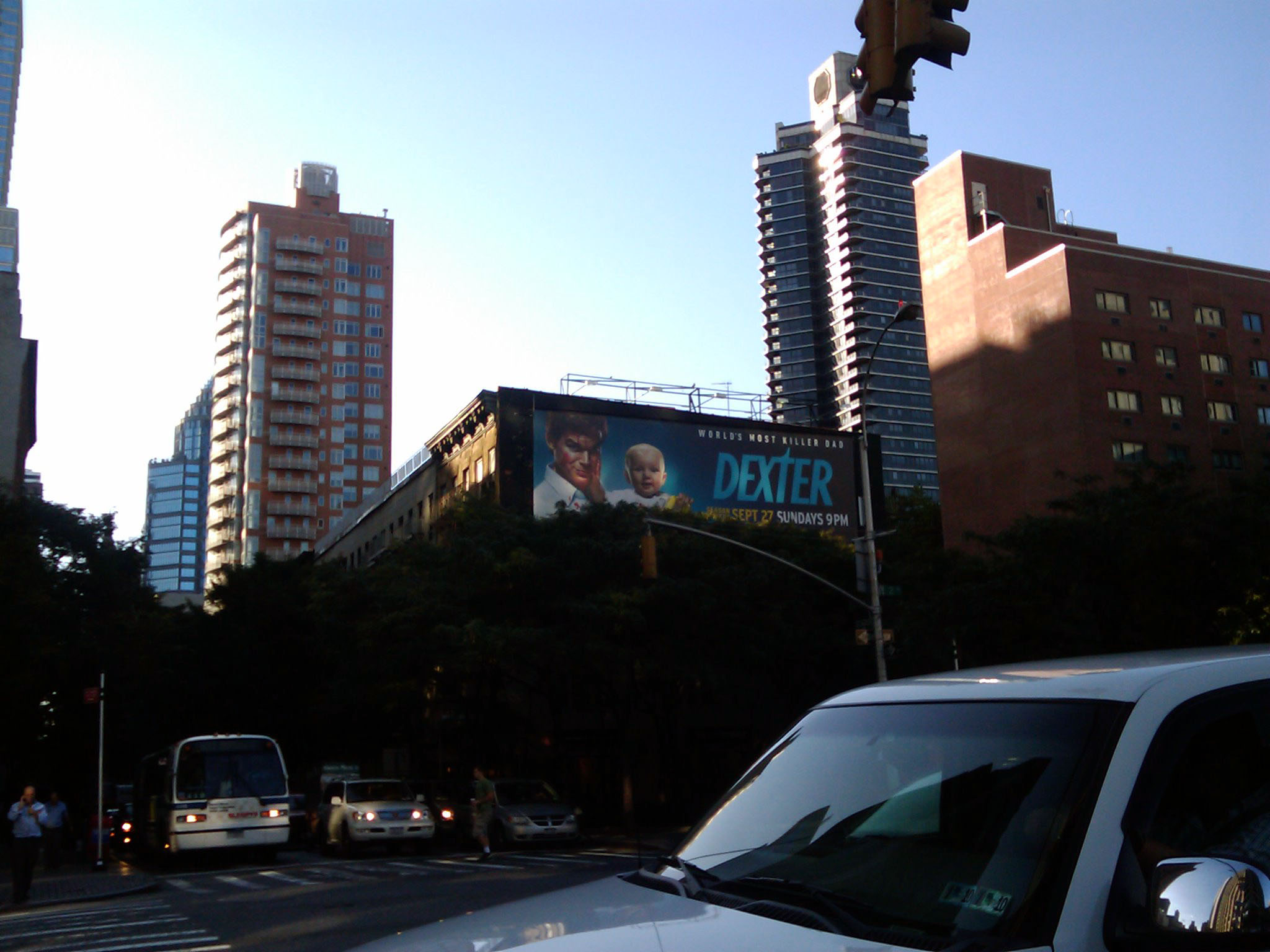I love TV. I love it so much that I harshly judge people based on their viewing habits. I’ve ended relationships because of disagreements over which Iron Chef series is better (original, duh). So I take TV very seriously.
I also watch a lot of TV online or via Netflix because, you know, geek. I finished Dexter season two months ago and was really looking forward to starting season three, which just came out on DVD. This is all background information for my griping.
My point is, I walk outside my office one afternoon and I see this noise:

Y’all in NYC have probably seen these promos for Dexter season four all over. It’s in the subway and on buses and, I dunno, stuck to the backs of the doors in women’s rooms.
And it pisses me off because it’s like a giant spoiler that’s following me everywhere!
“Teej,” say the unfortunate people who must listen to me whine about this, “it’s not that big of a spoiler. I mean, it’s just Dexter holding a kid. Could mean anything.”
To those unfortunates I say: LOOK AT THE COPY.

Here’s my dramatic reenactment of how this ad campaign came about. Imagine a room full of modern day Mad Men wannabes: Diet Coke instead of scotch, mint gum instead of cigarettes, you get the picture. And GO:
“We can just have the picture of Dexter and the baby. Good image.”
“Do you think people will take it the wrong way? We don’t want people thinking he’s going to kill the baby.”
“Yeah, we definitely don’t want people to think he’s going to kill the baby.”
“Can’t have baby-killing.”
“Nope. No baby-killing. Can’t have that.”
“We need some copy that explains that he’s not going to hurt the baby.”
“Oh, how about ‘This is Dexter’s baby that he had in season three that TJ Dietderich hasn’t seen yet because it just came out on DVD’? Good?”
“Yeah, but ‘World’s Most Killer Dad’ is snappier.”
“Cut! Print! We’re done here.”
End scene.
It’s not like this baby was a secret; I’m told there was a special behind-the-scenes episode about this plot line. But I had gone to great lengths to avoid those things. Copy, on the surface, seems to have very little to do with my spoilery anger. But allow me to make an incredibly far reach.
I believe that all copy, even ad copy, should consider its audience. Not its intended audience, not its target demo, but every single person who’s going to be looking at it. Obviously the ad dudes considered the people who might be offended by the image of the baby with a serial killer (oh, spoiler alert, if you haven’t seen season one: Dexter is a serial killer). Why not also consider the people who would be offended by spoilers? Why not just let that image and the show logo speak for itself? Why the annoying little pun that destroys all the mystery?
Who is this ad for? All the people who are caught up on the show and already know about the baby? All the people who are only vaguely familiar with the premise of the show and love babies? What about me in the middle ground, yo? Where’s my Dexter ad?
Signed,
baby-hatin’ Teej.
[reus id=”1″]